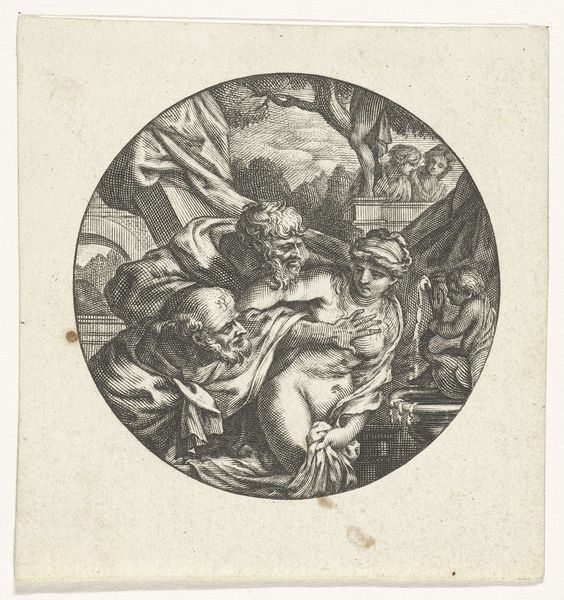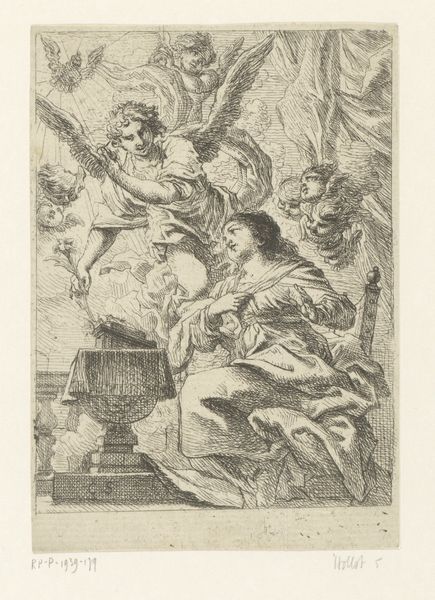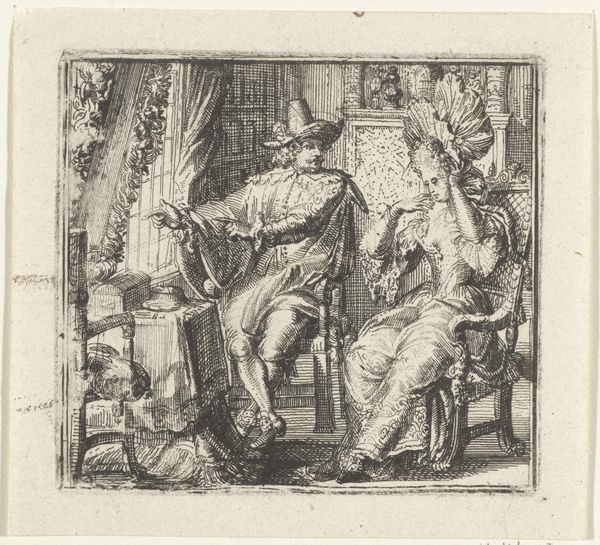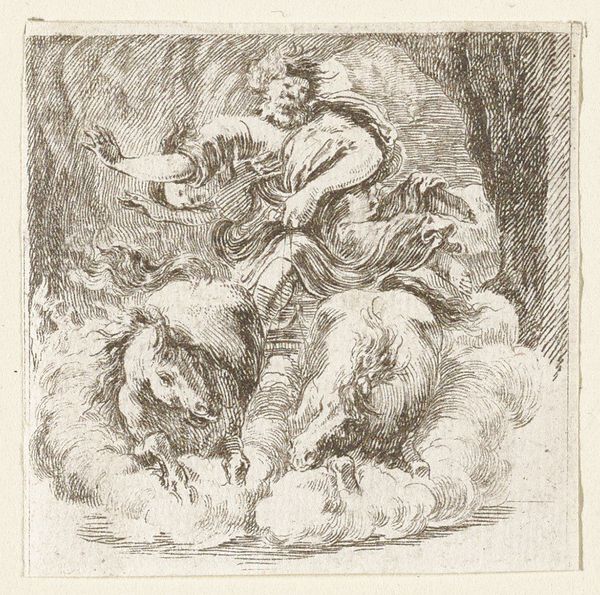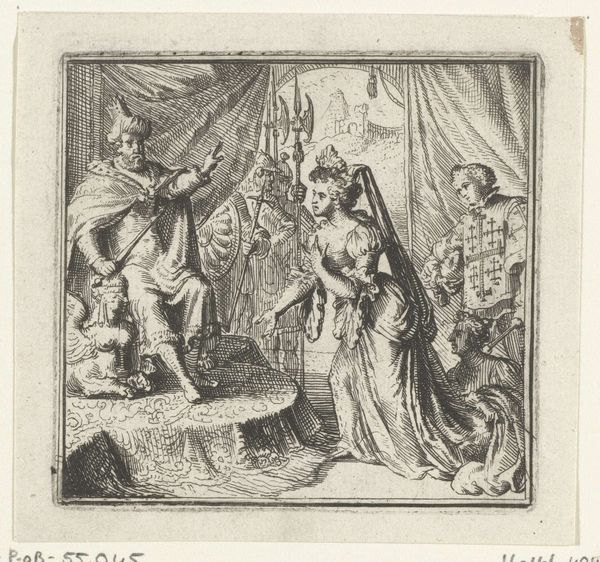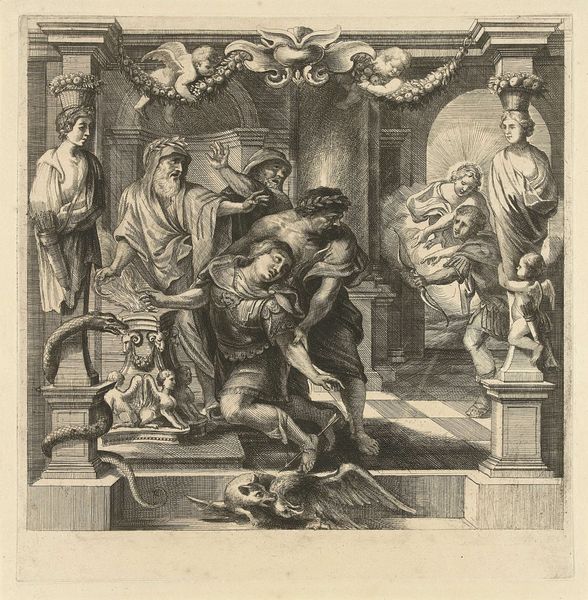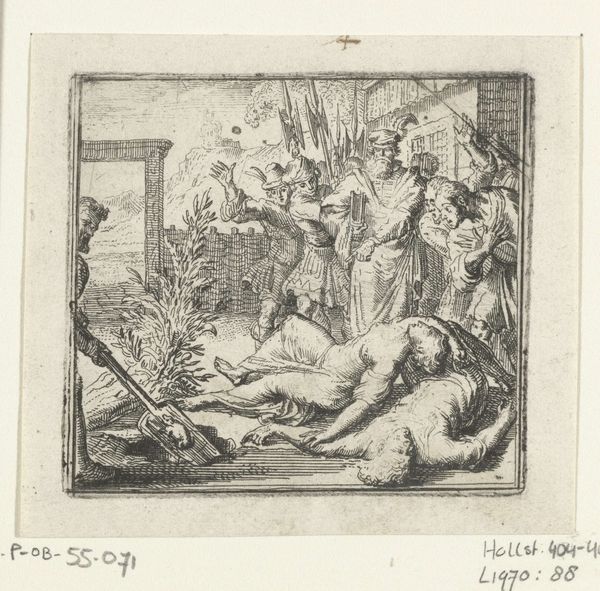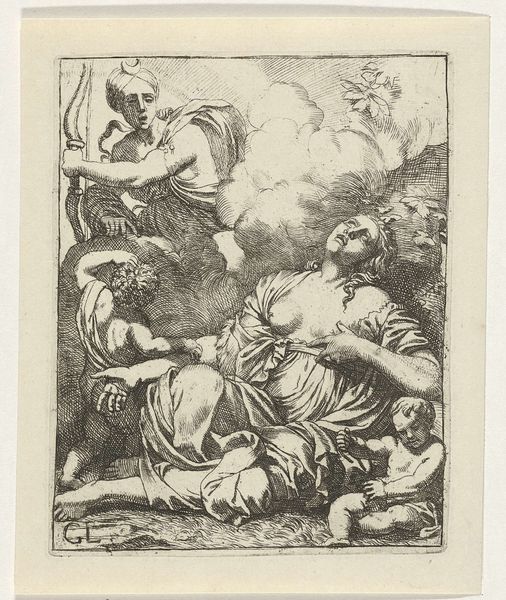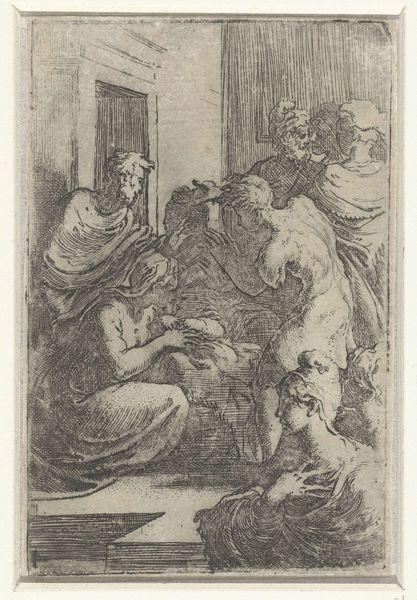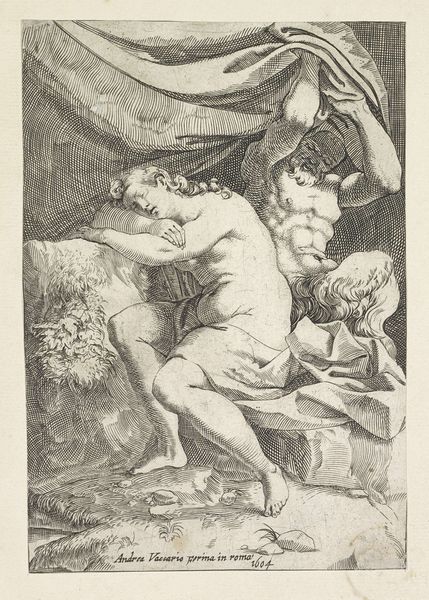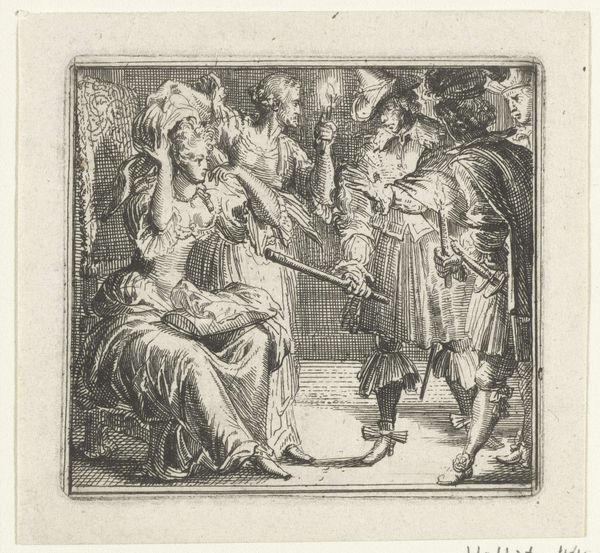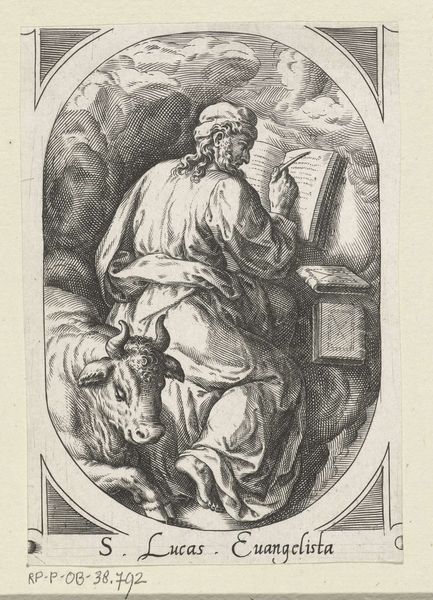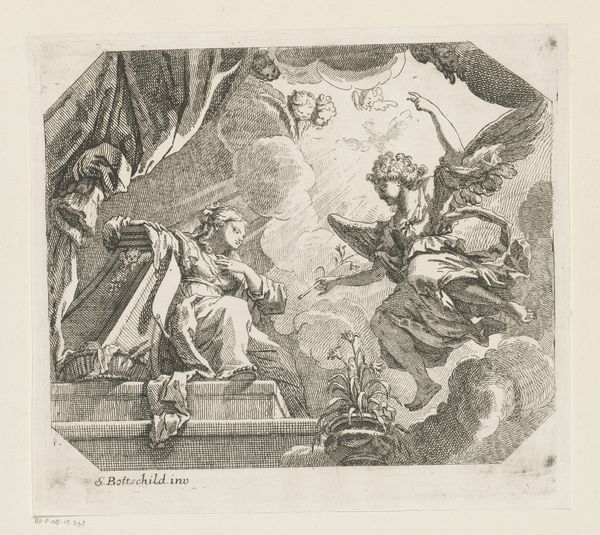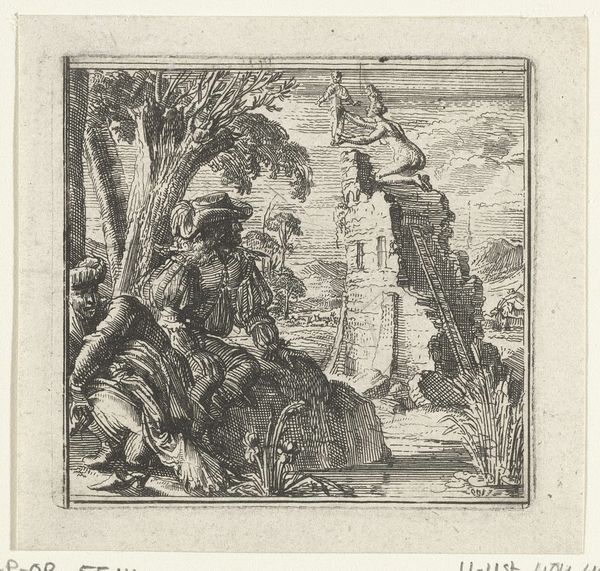
print, engraving
#
baroque
# print
#
old engraving style
#
figuration
#
pen work
#
history-painting
#
engraving
Dimensions: height 74 mm, width 79 mm
Copyright: Rijks Museum: Open Domain
This is Romeyn de Hooghe's illustration for Boccaccio's Decameron, made sometime between 1660 and 1708. Notice how de Hooghe uses etching to create intricate scenes within a compact space. The dominant image is a barrel, framing figures in a moment of conspiratorial activity. The barrel serves not only as a container but as a visual device, segmenting the composition and focusing our attention. Its circular form contrasts with the rectilinear elements of the background architecture, creating a dynamic tension. De Hooghe uses light and shadow to enhance the depth and texture, particularly in the rendering of fabrics and foliage. What is most compelling is the way the artist plays with perception. The barrel becomes a stage, and the figures within enact a drama that is both intimate and exposed. This interplay between containment and revelation challenges our understanding of space and narrative, inviting us to question what is hidden and what is revealed.
Comments
No comments
Be the first to comment and join the conversation on the ultimate creative platform.
